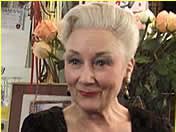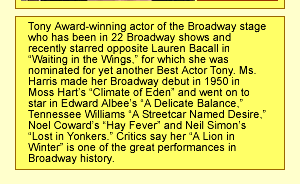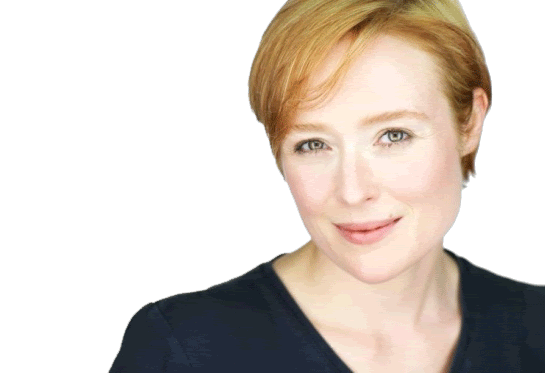'Richard III' in hell
By Alastair Macaulay
8 September 1995
Financial Times
(c) 1995 Financial Times Limited. All Rights Reserved
The Royal Shakespeare Company's new production of Richard III is pointless. Because it is in several ways foolish, and because it contains virtually nothing distinguished, one is tempted to speak of it with maximum severity; but this would be a mistake. Among its few basic old-fashioned virtues, it tells the story of Shakespeare's famous history play more or less clearly, and its cast maintains a general level of professional competence. Some of the humour is humorous, and some of the dark moments are dark. Several members of the cast would doubtless belong well in some other staging of the same play.
Richard III is David Troughton, who has done amiable and sterling character work for the RSC for several seasons in quite a range of parts: Caliban, Goldoni's Venetian Twins, Hector (in Troilus and Cressida), Kent (in King Lear), Holofernes (in Love's Labour's Lost), Lopakhin in the current Cherry Orchard. His Richard is a lop-sided gargoyle, a livid grotesque; and it is very possible that this conception could be an absorbing centrepiece to ... some other staging.
The director here, however, is Steven Pimlott, who - as in several of his other RSC productions with other actors - encourages Troughton and most of the other actors to give ponderously contrived performances. Mannerisms that have never before been troubling in Troughton have been allowed here to become woefully intrusive. His mouth keeps hanging open like a triangular gash; his eyes stare forth with artificial ferocity; he gives some lines a gloating warmth ('his daughter meanly have I matched in marriage'); he pings out final consonants for comic emphasis; he delivers certain rows of words as comic staccati ('I. Am. Not. In. The. Giving. Vein. Today'). All these devices can be effective, but here are considerably overworked.
John Nettles does one of his polished and self-congratulatory performances as Buckingham. Michael Siberry is given little chance to make an impression as Clarence. Jennifer Ehle delivers a lot of self-conscious nobility (in spite of some Edward Heath 'Thou' vowels) as Lady Anne. Cherry Morris's Queen Margaret is out of the best Peggy Ashcroft mould, albeit without great power or distinction. Diana Coupland starts Queen Elizabeth as a kind of Penelope Keith arriviste and fusspot, who is weathered by a situation beyond her into a surprising complexity. As the old Duchess of York, Diana Coupland is a dull little shrew.
Pimlott applies a number of clever-clever gimmicks. There are a great many significant silences, starting from the start. (Richard's first appearance is a false entrance, stopped before his first word by the entrance of the court.) The dead who will visit both Richard and Richmond before the battle are often visible at earlier moments, welcoming each new victim into their number. The two leaders deliver their big pre-battle soliloquies simultaneously. Dead, Richard sits at the side of the stage and does a slow handclap to Richmond's final words.
Pimlott also applies a certain amount of jiggery-pokery with the text. Several lines are moved around. Three citizens are orchestrated into a naff chorus; and Richard, at the moment of death, reprises key lines from his first speech. The effect is remarkably uninteresting. Jason Carr has provided some grim and unnecessary music which deliberately undercuts poor Clarence's great speech and then returns as Tyrell narrates the demise of the princes in the Tower: you know, the kind of mood music that tries to stop you listening to what is being said.
In Tobias Hoheisel's designs, a central wall of headache blue, across the stage, faces on to a waste landscape of lime green; and Richard is dressed in uniform red. Sometimes the wall opens to reveal a single grey and cell-like chamber which has to function as umpteen different interiors. No doubt, in a play whose protagonist progresses from ambition and malice to tyranny and murder and despair, this ugliness is deliberate. In any case, it is the set from Hell.
In RSC repertory at the Royal Shakespeare Theatre, Stratford-upon-Avon, until January 27.
In happier news, Broadway: the Golden Age, a documentary with Rosemary Harris, is showing on PBS in the US. Unfortunately we've picked this up a bit late but fans in Buffalo, NY can just make it - it's on at 9pm tonight (Sunday) on WNED. That's very soon, so turn on your tellies! It's on next month in NYC and you can call in for dates for Chicago, Dallas and San Francisco. But anyway, you can buy it on DVD.
A Pemberlean who caught it notes Ms Ehle's "sort-of cameo":
I was watching the Broadway documentary on PBS last week, and there was Rosemary Harris in a dressing room, reminiscing about going to Sardi's and who one would see there. And behind her, on her dressing table, was a lovely picture of her daughter Jennifer.






No comments:
Post a Comment